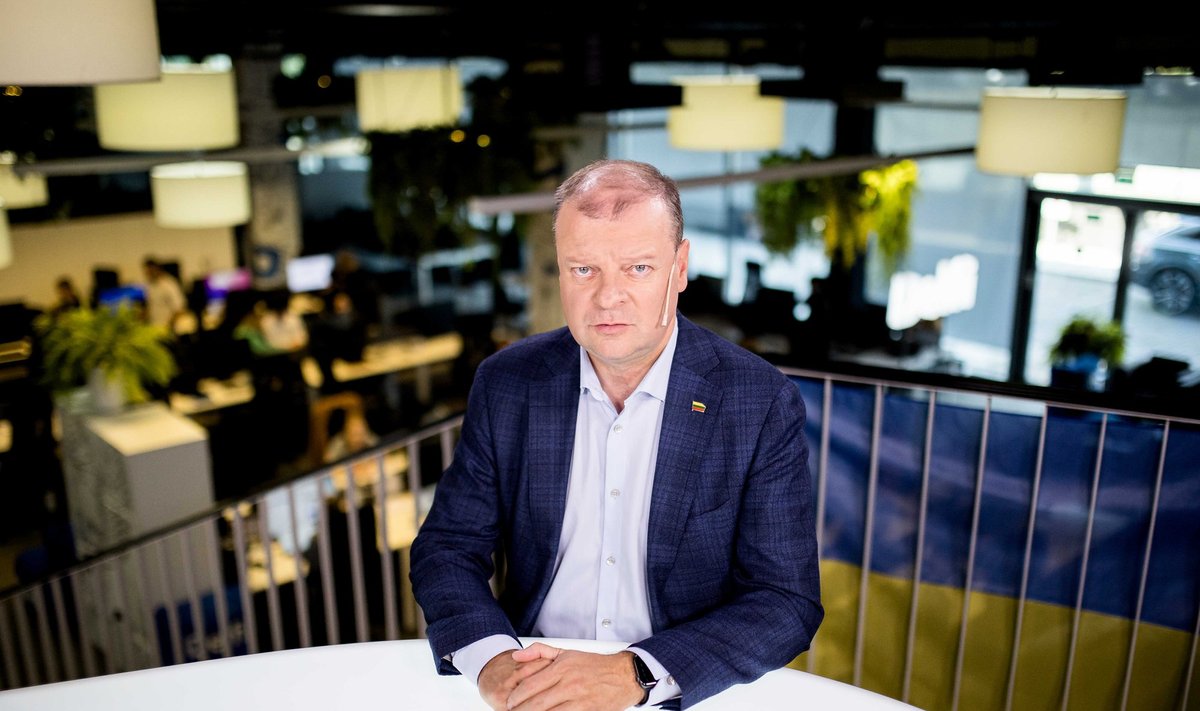“Answers are lacking. It seems a group for consultations will be formed and Minister Landsbergis will be interpellated in the autumn session,” Social Democratic MP Gintautas Paluckas told reporters.
“We have not received answers to many questions. First, whether Lithuania had or had not asked for the so-called negotiations or guidance. Second, if all governmental institutions, which shape and implement foreign policy, were adequately informed about this. Third, how much truth the ministers are telling altogether and how much they are lying because the interpretations vary greatly,” said Paluckas, stressing that the Social Democratic Party supports the interpellation.
Former prime minister, leader of the party Democrats For Lithuania, Saulius Skvernelis, told reporters that the interpellation would help obtain the necessary answers regarding Kaliningrad transit.
“The minister should answer many questions from the lectern of the Seimas, answer very concretely and very clearly. We will create this opportunity. We will consult with opposition parties today as regards further actions,” stated Skvernelis.
However, the MP doubted that the interpellation would end in the foreign minister being replaced.
Meanwhile, Conservative leader Landsbergis told reporters he answered all the questions of opposition MPs on Wednesday.
“It seems to me a bigger problem is that the opposition and parliament in general, together with colleagues from ruling parties, find it difficult to formulate a joint position. Should there be sanctions or not, do we have to implement the EC’s recommendations or not. The EC has itself declared, having all he information that was provided, that Lithuania did everything right, in other words, confirming the Government’s position. I have nothing more to say. Unfortunately, this is the reality,” said the foreign minister.
Landsbergis added that by bickering politicians would give an advantage to Lithuania’s enemies.
What is more, the foreign minister criticised MP Skvernelis for his statements about Kaliningrad transit being an exclusive problem of Lithuania in the EU. According to Landsbergis, the leader of Democrats For Lithuania is setting a dangerous precedent.
“In other words, he is saying what the Kremlin is requesting. He is asking for a corridor, for a commitment, he claims there is no other way out and Lithuania is in an exceptional situation,” said Landsbergis.
“I would like to stress that Lithuania’s situation is not exceptional. In our consultations with the EC we constantly stressed that any rules, new elucidation must not be applied solely for Lithuania,” said Landsbergis.
The foreign minister added that Russian goods could be transported to Kaliningrad via Poland, too. Or they could be transported to Berlin, then back to Warsaw and then to Kaliningrad.
Therefore, Landsbergis believes that claims about Lithuania’s exceptional situation create a national security problem and this was communicated to the European Commission from the very beginning.
As reported, when some of the EU’s sanctions on Russia took effect on 17 June, Lithuania restricted transit of steel and ferrous metals to Kaliningrad Oblast. On 10 July, following the EU’s sanctions, Lithuania also restricted transit of Russian cement, alcohol and various luxury goods. Russia responded to this by threats.
On 13 July, the European Commission published additional guidance on transit that allowed transporting some sanctioned Russian goods to Kaliningrad via the EU by rail. However, it is still prohibited to transport military items and dual-use goods.
